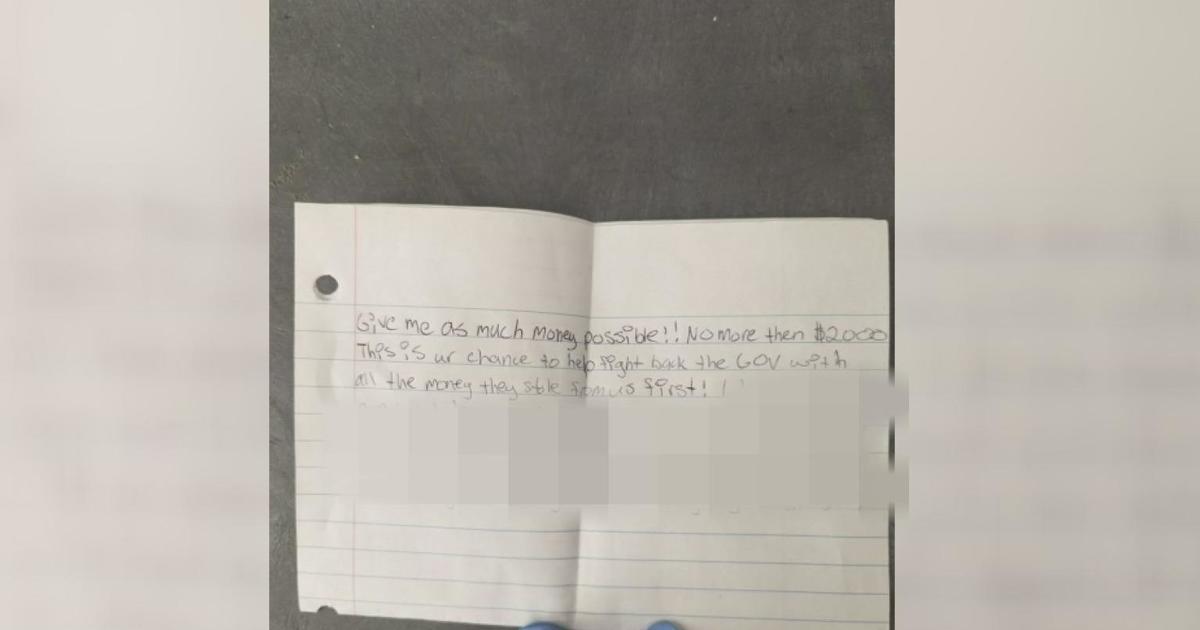Chicago woman living with sickle cell disease finds purpose through her pain
CHICAGO (CBS) -- On this Giving Tuesday, giving back isn't just about money you can also give by donating blood. For someone with sickle cell disease, it's such a lifeline.
The stream's Jamaica Ponder spoke with a woman who is living with the disease and also advocating by teaching others to advocate for themselves as well.
On cold mornings, Ronisha Edwards-Elliott has a harder time than usual.
"I was born in the winter but I don't ever look forward to it because I know that some of the hardest times of the year for me and my disease," she said.
She's one of more than a hundred thousand Americans living with sickle cell disease and for her…
"Cold really, really impacts my pain. It's impacted by stress, it's impacted by change."
Something like a change in season or an overload of stress can set off any number of health complications - most characterized by pain.
"There is acute pain, which is when I'm having a pain episode, but then there's also chronic pain, which is just everyday something you could think about, like arthritis."
So she's situated herself and her home to make life easier to access.
"The number one thing that it changes my mobility. I'm fortunate enough where my house is convenient for me," she aid.
The bathroom is beside the kitchen which is just across from her home office.
"I primarily work from home because I'm capable."
Not only is she capable, but as she loves to say...
"Anything you could do, I could do better because most times I just have to learn how to do it differently.
She advocates for other sickle cell patients, similarly to how she's learned to advocate for herself.
"I don't wish sickle cell disease on my worst enemy, but it is probably the best thing that has ever happened to me, that I found strength in my pain, that I found purpose in my pain."
But Edwards-Eliott didn't always see it that way.
"Just being a child, that really made me cause me to isolate myself, to think of myself as different, and instead of telling them that I was sick, because I didn't know how to express it at the time."
For a long time, no one outside of her immediate family even knew she was sick. When she'd have stints in the hospital...
"I told my friends that I was on a family vacation."
It wasn't until she left for college, and quickly lost control of her health, that she began asking for accommodations.
"Where now at 20 years old, I was applying for handicapped parking."
And advocating for herself, getting out of her comfort zone, to get back into it.
"And it really changed how I looked at myself and how I launched into the advocacy space that, you know, I can use my story, I can use my gifts.
Tapping into those gifts launched Edwards-Eliott into a now ten-year-long professional advocacy career.
"And together with my colleagues at U.I. Health Pediatric Department of Sickle Cell Disease, we help patients to learn different skills for transitioning into adulthood with their disease."
She develops and disseminates tools and resources for young people to use in managing their disease.
"We are meeting a demand."
Because while you may not be able to see their pain…
"To understand that this disease exists, you cannot measure pain, you have to believe pain," she said.
As a disease that disproportionately impacts Black and Latino communities - getting both doctors and everybody else to believe the pain that they oftentimes can't see can be an uphill battle.
One way those of us who aren't impacted are able to help is by donating blood - especially if you're a minority.



